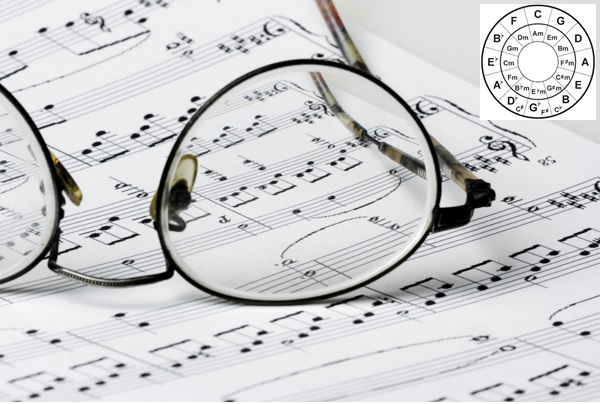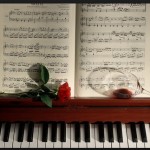
The Essential Canon of Classical Music is a music literacy handbook, packed with useful information that every musician, music teacher and music lover will need to refer very frequently.
The book focuses on 240 composers (includes key composers of each era as well as the lesser known ones) whose works are most important to an understanding of classical music and offers a comprehensive, chronological guide to their lives and works. He introduce readers to little-known works by famous classical music composers such as Bach, Haydn, Mozart, Schubert-as well as to the major works of lesser-known composers. The book focuses on the key composers of each era and spends a lot of time on the artistic development of each composer. Towards the end of the book, the author provides a list of recommended CDs, for someone intterested in building a collection.
So, its a useful reference guide to classical composers and their music-for both the novice and the experienced listener.
While the book provides a compelling overview of the major periods of classical music as well as the major composers and their major works in each period, the book doesn’t cover early music much in detail. As on of the reviewers of the book pointed out, book does not go into the depth of early music. Mr. Dubal devotes:
- 14 pages to pre-Baroque music
- 44 pages to Baroque music
- 77 pages to the Classical era (including Beethoven)
- 355 pages to Romantic music
- 194 pages to the Age of Modernism
Another reviews says he would heave preferred to more composers included in the book: John Field has been left out whereas Hummel is included. Paisiello, too, is left out though Cimarosa isn’t. Purcell and Vivaldi are relegated to the ‘Other Composers’ Section! Marginal composers Thomas Arne and Antonio Soler are given their due while the much more talented sons of Bach, Wilhelm Friedemann and Johann Christian are excluded. Amongst minor composers of Romantic opera, Lortzing and Nikolai are preserved, but Flotow is sacrificed.
The book also doesn’t spend a lot of time analyzing the key elements of a particular composition or how the composer went about composing the music (accomplishing his purpose with that particular piece of music).
Having said that the book provides several useful (but not too technical) information about the history of music and the composers. For each composer, the book reveals their story and history and then describes some background of the major works and their significance. His historical essays on the major music eras (Renaissance, Baroque, Classical, Romantic, Modern) and the composers makes for engaging reading. Mr. Dubal also covers a lot of lesser known composers, their lives and their works, something that most other books on this topic avoid doing.
Readers who already have much awareness abut classical music may find certain shortcomings in the book but for most enthusiasts of music, this book will come across as detailed and comprehensive.
The book provides wonderful introductions to the composers, and vivid descriptions of the music. The author also recommends recordings that are invaluable. If you in the process of (or are planning to) assemble a library of classical recordings, this is one book that you must consider. It’s a valuable work of reference.
Buy The Essential Canon of Classical Music on Amazon.
About the Author
The book is authored by David Dubal, a professor of piano literature at the Juilliard School; he was the classical-music program director at WNCN for more than twenty years.
KeytarHQ editorial team includes musicians who write and review products for pianists, keyboardists, guitarists & other musicians. KeytarHQ is the best online resource for information on keyboards, pianos, synths, keytars, guitars and music gear for musicians of all abilities, ages and interests.



Leave a Reply